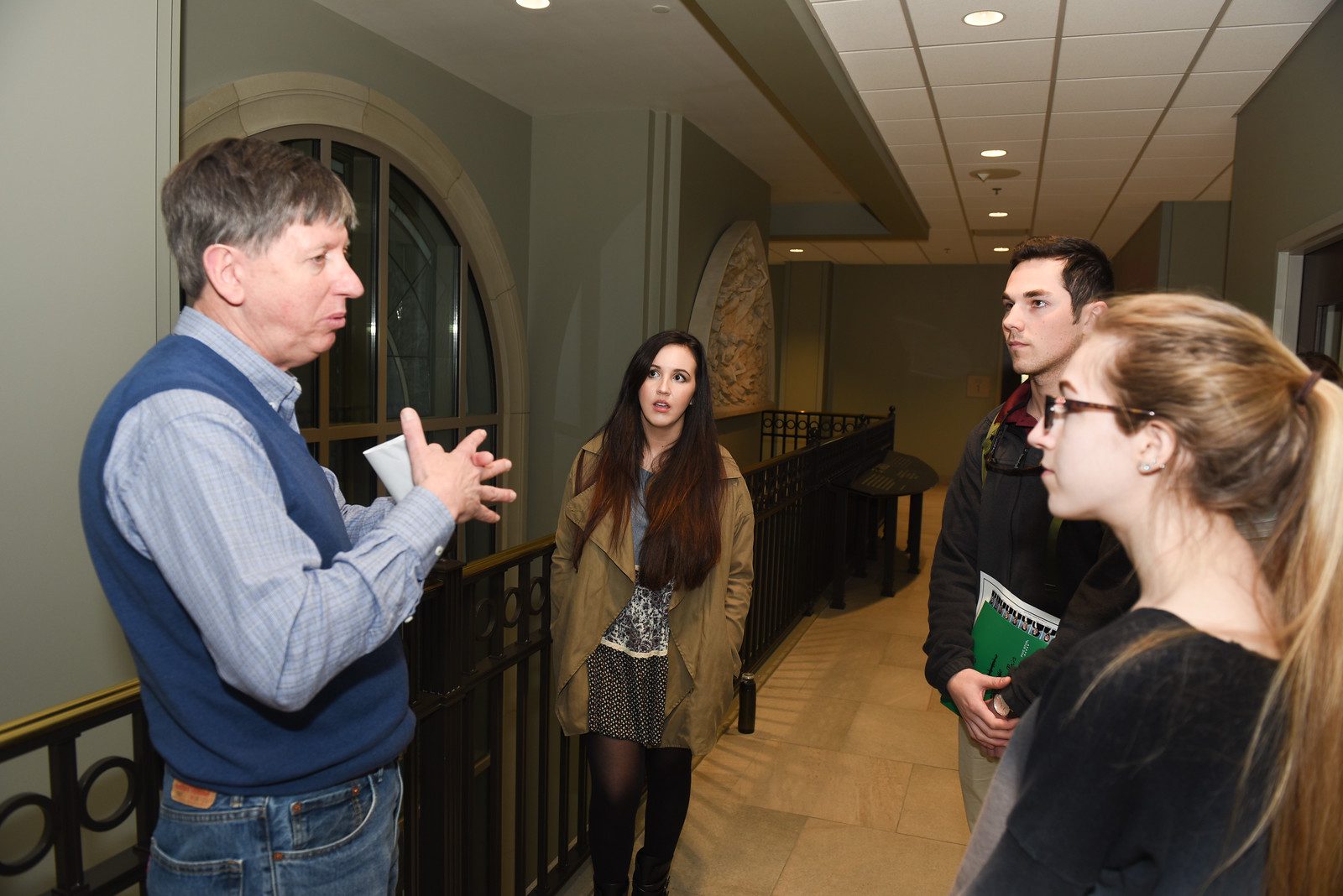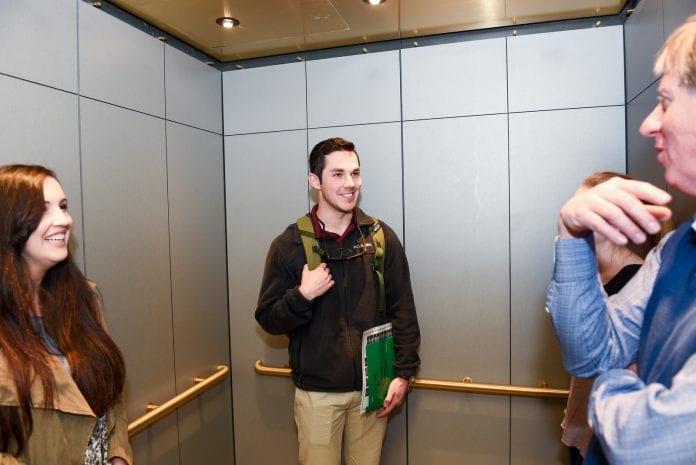The notion of an “elevator pitch” takes on new meaning in Dr. Jimmy Davis’ Business and Professional Communication class, as students are challenged to market themselves in a 30-second ride on an Ayers Academic Center elevator with peers and a professor observing the “pitch.”

The class puts practical experience at the forefront as it seeks to help students develop the crucial personal communication skills that are commonly needed in business and organizational settings, including creating a resume and cover letter, practicing a job interview and learning negotiation skills.
In teaching the course, Davis began to recognize that his students were struggling to craft effective cover letters that would help them in their future job searches. The elevator speech assignment was birthed as a way “to get them to focus their ideas. That elevator door opens a lot faster than they think it will so they have get to the point more precisely… and then that clarity helps them revise and sharpen their cover letters.”
Sophomore English and publishing double major Jackie Karneth, from Bedford, New Hampshire, said, “The elevator pitch was kind of intimidating because you’re being put on the hot-seat. You have to defend your value as a candidate for employment in less than a minute and that’s a heavy task. I went into the elevator and began marketing myself. I discussed my skills, my background, my passion for the work, etc. And then I learned that what I said was not as impactful as I had thought. The best way to market yourself is actually to talk about the company more than yourself. That’s the trick. What are the company’s values and goals? How do you plan to help them reach those goals? That’s how you market yourself.”
Junior Corporate Communications Major Griffin Heckert, who hails from Glen Mills, Pennsylvania, added, “Dr. Davis guided us through, making sure we were upfront in our explanations and clear with the intentions of the speech without dragging on for too long. It made me think on how first impressions can be very important and that you have to be honest and confident.”
Davis noted that students generally have a lot of “fear and trembling” about the assignment in the beginning as anyone can join the pitch in progress with every elevator stop. However, once the pitches are complete, attitudes often change. “After it’s over, and they see the connections between the elevator speeches and their cover letters and between their cover letters and their careers and between their careers and the arc of their lives… well, they like it a lot more then.”
Beyond the elevator pitch assignment, for Karneth, learning how to adapt was a big benefit for her from this course, She concluded, “Dr. Davis taught us to be confident in our work and to defend the choices we make. In college and in the workplace, you won’t always know exactly what is expected from you, so you have to do your best and explain why you made the choices that you did.”



